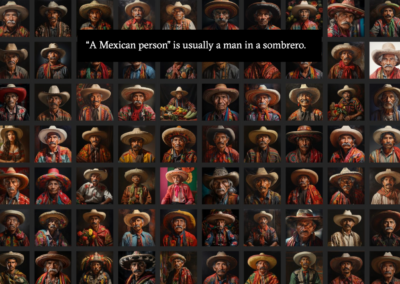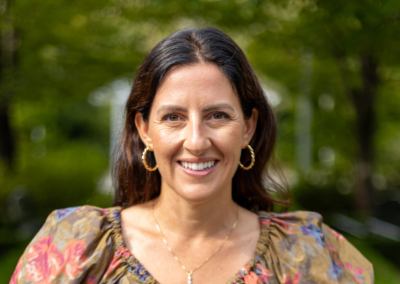Carrie Leonard and Carol Whitworth have been working on the front lines of ‘The Future of Work’ since well before the term existed. Carrie leads a boutique consulting practice in which she serves clients who need to install talent for launches or periods of rapid growth. Carol’s firm Home, based in Bristol in the UK, focuses specifically on employee experience, which is critically important to shareholder value. In this interview, Carrie and Carol discuss some of the current issues affecting talent and talent engagement.
______________________________________________________________________________________________________________
Carrie: Carol, let’s get right to it. Why is employee experience so important?
Carol: The brands we love are the ones that obsess about customer experience. They live and breathe a philosophy that every moment matters. But ultimately brands are about people. When we put our trust in a brand we are really putting our faith in the people behind it. And for an employee to believe in and deliver an external brand promise, they must experience these same brand values in their day-to-day.
Today, organizations understand that they have a powerful reach if their employees become advocates who are happy to share business content on their personal social channels. Social networks can turbocharge or damage brand loyalty in seconds. Influencers have stormed the world. This is great news for employee experience.
In short, the best brands understand their employee experience sits at the heart of their customer experience.
Carrie: I will say, my first brush with understanding the numbers supporting why employee engagement is so important came in helping your firm establish itself in the US back in 2013. The industry has definitely moved on since back then. I think most organizations get the importance of employee engagement, but not all think about the importance of employee experience or think about it strategically. I guess the question is, what do you think separates the firms that think about employee experience from those that don’t in the US.
Carol: Like you say, the industry has definitely moved on since 2013. It was all about internal comms, then employee engagement, now we think about designing the employee experience in a way that’s both aligned to an organization’s core values and will drive employee engagement. It’s sophisticated stuff. Our most forward-thinking clients have a dedicated employee experience resource, some with a chair at the table in the C-Suite. As these organizations start to reap the benefits of their investment, I am certain employee experience will become more common. It’s such an exciting time for our industry. Everything has been thrown up in the past year, and it will be fascinating to see the long-term implications of increased flexibility, working from home and a dwindling desire to pay for expensive offices.
Carrie: What firm or category are you dying to work in / with, and why?
Carol: It’s always been about the fit for me. I always look for clients who don’t know what the answers are, but they are brave enough to take a risk, be challenged and will listen to what they actually need rather than what they think they want. You show me a client like that and I don’t mind which firm or industry they work for. Of course, as a creative at heart there are many brands that I love, such as Patagonia, Apple, Uber, Airbnb, Salesforce, T-Mobile.
But let’s turn the tables on you Carrie. I know one thing you and I have been debating the last few years is the rise of agile talent; that is, what this all means for strategic employee communications. That feels like a very tricky concept for me, because I am an employee advocate. Tell me why I shouldn’t be worried about the rise of agile talent.
Carrie: It’s going to take me a few minutes to get there but stick with me Carol! More and more companies are hiring external talent to work with them – and here I’m talking about knowledge workers, who are working on strategic projects for a defined period of time. At many large enterprises well over ¼ of the total talent base might be comprised of external talent. These percentages are rising.
What is not so present right now is a cohesive strategy around how you engage external talent: how does a company attract agile talent, onboard them, support and rate them as they perform their role and stay engaged with them over the long haul. Are you with me so far?
Carol: Yes, but I’m a little stuck on the long-term engagement thing.
Carrie: Well think about it. If you’re an enterprise – really of any size – and you have a strategic reason for hiring agile talent, and you’ve found talent that performs well for you, but simply wants to work under a slightly different arrangement, wouldn’t you want to stay in touch with those workers over time?
Carol: Yes, I get it.
Carrie: Not every productive role requires a 40-60 hour a week commitment. We need to put the right person, against the right role, at the right time. Some roles may not require a full time commitment, and be no less strategic. Companies could fill these roles by asking a full-time employee to take on the extra work, or they could hire external, agile talent.
So, the world I see is that as companies hire more and more agile talent, they can’t really have an employee communication strategy and a non-employee communication strategy. What they’ll have is a group of PEOPLE, with various roles and various tax designations (full time employee, external consultant, etc.) who are all loyal to that company. I’m positing here that long term consultants to a company are indeed loyal to that company. They work there on various projects over a long period of time because they understand the company, they appreciate its values, they know how to get work done. They choose, over and over in a series of contracts, to work for that company…the same way a full-time employee chooses to stay in the long term employ of the company. Going back to what you said earlier, either type of worker is delivering to customers on the brand promise. So the employee comms you deliver to the employee, you should also deliver to the agile worker.
Taking all that in, would you change the way you engage a long-time consultant to a company versus an employee? You are going to have an increasing number of the former.
Carol: In that case, no, I wouldn’t engage them differently. And I quite like what you’re saying about thinking about roles more modularly.
Carrie: I read in a study recently that a large enterprise was able to transfer thousands of worker hours over to other tasks when Covid hit. They could do this because they had internal tech tools that helped them understand the skills of their workforce and how they could be re-deployed. Can you imagine? That’s the sort of flexibility that will continue to be quite important.
That said, I can imagine Covid has changed the practice of delivering employee comms?
Carol: Yes. It’s definitely made it harder, but my team has been dealing with that since the onset of the pandemic. Where once I was drafting posters, I find myself now doodling banner ads and Instagram designs – things that move. Our immersions tell us what our clients are dealing with in terms of how their employees are showing up to work.
Carrie: I think we can both agree the employee experience space is only going to get more fascinating from here. I look forward to our next discussion on it!
Carrie Leonard is an accomplished marketing and sales leader, future workforce expert, and founder of Consequential, Inc consulting firm.
Carol Whitworth is the founder and CEO of Home, an award-winning global employee experience agency.
Carrie’s Socials: Linkedin
Carol’s Socials & Website: Linkedin, Website
Editor’s Socials – Kiana Pirouz: Linkedin, Instagram



